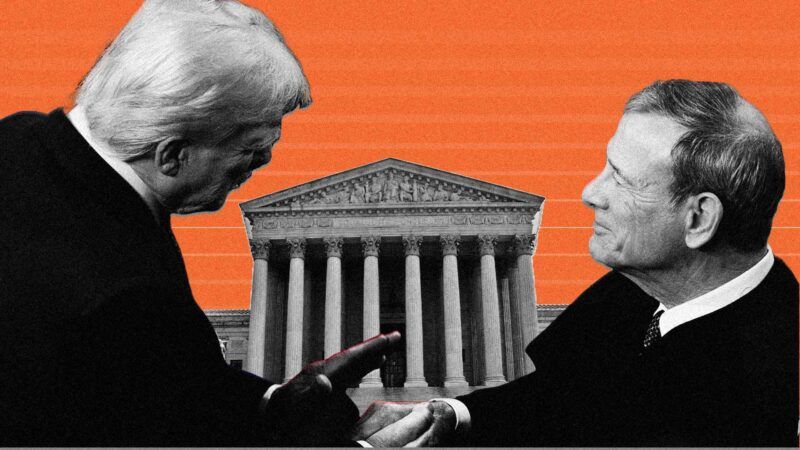John Roberts Only Postponed the Bigger Fight Over Trump's Deportations
The Supreme Court did not answer two of the biggest legal questions raised by Trump’s invocation of the Alien Enemies Act.

The U.S. Supreme Court's unsigned order in the Venezuelan deportation case Trump v. J.G.G. was a partial win for President Donald Trump because it lifted the temporary restraining order that a lower court had placed on Trump's deportations. However, the Court's order was also a clear loss for Trump because all nine justices agreed that all deportees under the Alien Enemies Act must be afforded due process, including "notice and an opportunity to challenge their removal." That unanimous holding by the Supreme Court was a clear rejection of the Trump administration's most expansive claims of executive power.
Trump v. J.G.G. is also notable for what it did not say. First, the Court did not say whether or not Trump unlawfully invoked the Alien Enemies Act in the first place in order to deport aliens who are alleged to be members of the street gang Tren de Aragua.
There is excellent reason to think that Trump did act unlawfully. According to the text of the Alien Enemies Act, it may only be invoked "whenever there shall be a declared war between the United States and any foreign nation or government, or any invasion or predatory incursion shall be perpetrated, attempted, or threatened against the territory of the United States, by any foreign nation or government." Yet there is no "declared war" with Venezuela and there is no "invasion or predatory incursion" by any "foreign state or government." The gang is not a foreign state and the gang's alleged crimes do not qualify as acts of war by a foreign state. There is zero textual support for Trump's actions.
Second, the Supreme Court did not say whether or not any of the individuals challenging their removals even qualified as removable aliens in the first place under the Alien Enemies Act. Once again, there is good reason to think that the Trump administration has acted unlawfully. As Reason's Jacob Sullum has noted, "the dubious 'alien enemy validation guide' that DHS has used to identify Tren de Aragua members, which includes iffy evidence such as tattoos, social media posts, and 'associating' with 'known' members, makes it plausible that at least some of the targets are victims of unjustified suspicion."
In other words, the Supreme Court did not answer either of the two biggest questions raised by Trump's deportations. But the Court did make it clear that the judiciary can and should provide answers in appropriate cases going forward. "We have held," the Court's order stated, "that an individual subject to detention and removal under [the Alien Enemies Act] is entitled to 'judicial review' as to 'questions of interpretation and constitutionality' of the Act as well as whether he or she 'is in fact an alien enemy fourteen years of age or older.'"
Such cases will now be filed according to the terms of Trump v. J.G.G. And those cases will soon be working their way toward the Supreme Court. This week's order by the Court only postponed the larger legal fight over Trump's deportations.


Show Comments (102)